Elderflower recipes
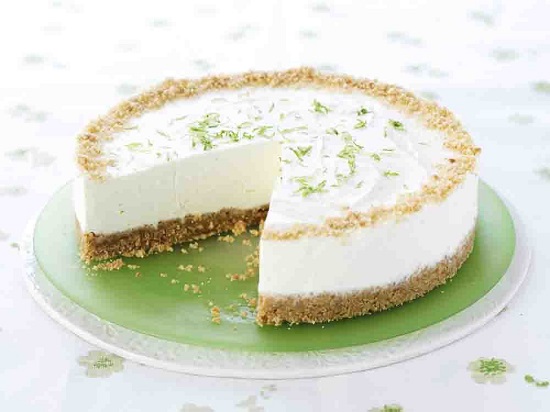
For many people, elderflower is the classic taste and scent of summer, and with warmer temperatures heading our way, hedgerows are beginning to explode with the distinctive frothy white blooms. Elderflower (sambucas niger) has a long history of use in food and medicines; the name “elder” is thought to be derived from “aeld”, the Anglo-Saxon word for fire and was considered sacred in various ancient mythologies. Elder trees would be planted around farms and houses for protection and acted as shrines for prayer and ceremony.
While the health benefits of elderflower are numerous, the elder plant is potentially harmful – all leaves, sticks and roots are best avoided. The flowers and berries are useable and found widely in food products. Elderflower is a commonly used ingredient in traditional medicine across the world in many cultures thanks to its antiseptic and inflammatory properties; it’s also proven to reduce blood sugar levels in a similar way to insulin.
A popular choice of flavour for cocktails, particularly when paired with gin, elderflower is a bartender’s essential. Gordon’s launched a variant of its product with a floral element last year, seizing on the current revival the gin industry is enjoying.
Whether you’re making your own cordial or syrup, or using a pre-made version in a dessert, cocktail or dressing, a wealth of ideas are available online, perfect for welcoming in summer. Why not try out one of these gorgeous recipes?
2½ kg white sugar, either granulated or caster
2 unwaxed lemons
20 fresh elderflower heads, stalks trimmed
85 g citric acid (from chemists)
Put the sugar and 1.5 litres/2¾ pints water into the largest saucepan you have. Gently heat, without boiling, until the sugar has dissolved. Give it a stir every now and again. Pare the zest from the lemons using a potato peeler, then slice the lemons into rounds.
Once the sugar has dissolved, bring the pan of syrup to the boil, then turn off the heat. Fill a washing up bowl with cold water. Give the flowers a gentle swish around to loosen any dirt or bugs. Lift flowers out, gently shake and transfer to the syrup along with the lemons, zest and citric acid, then stir well. Cover the pan and leave to infuse for 24 hrs.
Line a colander with a clean tea towel, then sit it over a large bowl or pan. Ladle in the syrup – let it drip slowly through. Discard the bits left in the towel. Use a funnel and a ladle to fill sterilised bottles (run glass bottles through the dishwasher, or wash well with soapy water. Rinse, then leave to dry in a low oven). The cordial is ready to drink straight away and will keep in the fridge for up to 6 weeks. Alternatively, freeze in plastic containers or ice cube trays and defrost as needed.
Gooseberry and elderflower ice cream
1½ lb/700 g young green gooseberries
8 tbsp elderflower cordial
3 oz/75 g sugar
For the custard:
10 fl oz/275 ml whipping cream
3 large egg yolks
2 oz/50 g sugar
1 tsp cornflour
1 dessertspoon liquid glucose
You will need:
3½ pint (2 litre) polythene freezer box 8 x 8 inches x 2½ inches deep (20 x 20 cm x 6 cm deep).
First place the cream in a saucepan and bring it up to just below simmering point. While it is heating, place the egg yolks, 2 oz (50 g) sugar and the cornflour in a bowl and whisk together till smooth. Add the liquid glucose to the hot cream and whisk that too until the glucose has melted down and blended with the cream.
Next, pour the whole lot over the egg mixture, then return everything to the saucepan and continue whisking over a medium heat until the mixture thickens to a custard.
Rinse out and dry the bowl, pour the custard back in, cover with clingfilm and allow to cool.
Meanwhile top and tail the gooseberries using kitchen scissors and place them in a saucepan with 3 oz (75 g) sugar. Put a lid on the pan, place over a low heat and let them cook gently till soft – about five to six minutes. Then place a large nylon sieve over a bowl and press the gooseberries through to extract all the pips.
Next, stir the elderflower cordial into the gooseberry purée and, as soon as the custard is cool enough, combine the two together. Now you can either freeze-churn the mixture in an ice cream maker until thick, or else pour it into the polythene freezer box, cover with a lid and freeze till half-frozen (about three to four hours). At this stage beat the mixture, still in the box, with an electric hand whisk.
Return it to the freezer then repeat three hours later, and after that freeze until solid and store until needed. Transfer to the main body of the fridge for 30 minutes before serving
Elderflower and lime cheesecake
3/4 large pack digestive biscuits
90 g butter
60 g sugar
360 g full-fat cream cheese
160 ml double cream, lightly whipped
Icing sugar, to taste
1 lime
Zest of 1 lemon
2 tbsp Belvoir elderflower cordial
Place the digestive biscuits in a large plastic bag and, using a rolling pin, crush until they resemble fine breadcrumbs.
Melt the butter in a large saucepan and add the crushed biscuits and sugar. Stir until they are fully combined.
Press the biscuit mixture firmly into an 8″ round tin with a lift-up base and place in the fridge to set.
Wash the lemon and grate the skin using a fine grater or a use a lemon zester.
Slowly add the Elderflower Cordial to the cream and lemon zest until it is a smooth, thick paste.
Spread this mixture on the biscuit base and refrigerate.
Just before serving, sprinkle the cheesecake with the zest of the lime and place twisted slices of lime around the edges.
Wild tea and elderflower martini
Absolut wild tea vodka
Chase elderflower liqueur
Lemon juice
Apple juice
Chill a cocktail glass with crushed ice.
Add all ingredients to a Boston glass and shake with cubed ice.
Remove crushed ice and strain the mixture into the glass then garnish with a mint sprig.
Cherry, lovage and elderflower dressing
125 g/5 oz cherries, stones removed
50 ml/2fl oz elderflower cordial
50 ml/2fl oz cider vinegar
100 ml/4fl oz rapeseed oil
Salt, to taste
To make the dressing, place the cherries and elderflower cordial into a saucepan and bring to a gentle simmer. Do not boil – just let the cherries warm through and bleed their colour into the cordial until it takes on a pink colour.
Remove the saucepan from the heat and allow the mixture to cool.
Remove the cherries from the mixture and set them aside.
Whisk in the cider vinegar and rapeseed oil. Add a pinch of salt to taste and return the cherries to the pan.
Recommended served with duck
Emma Pugh

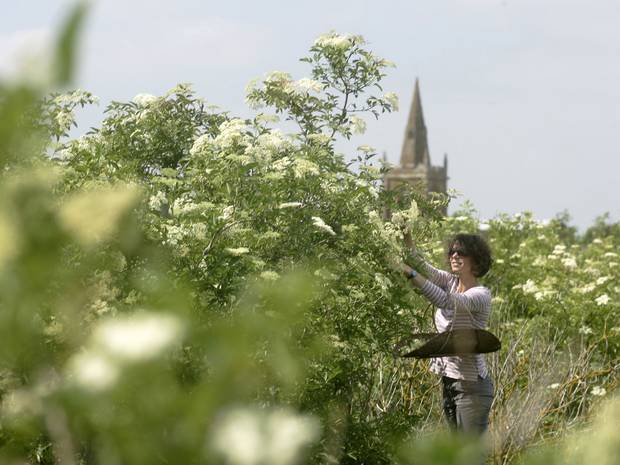
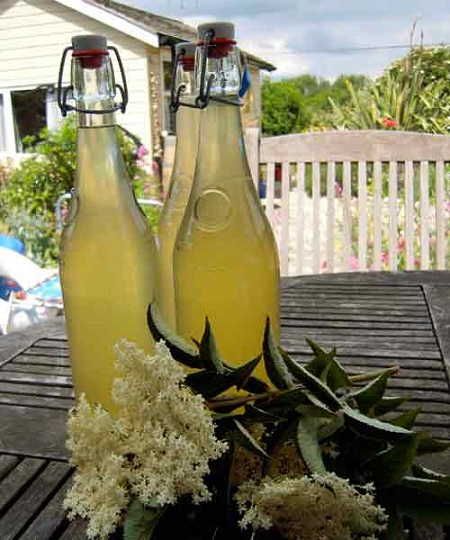
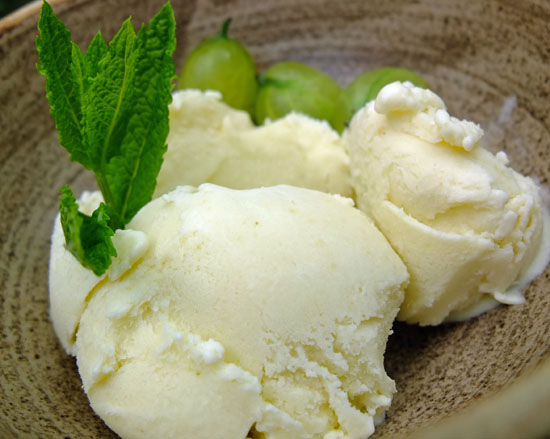
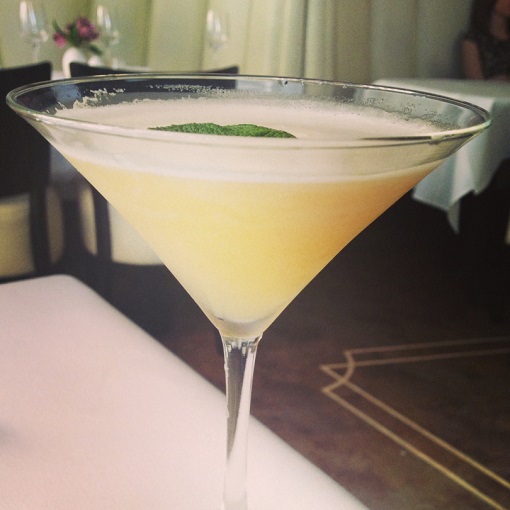
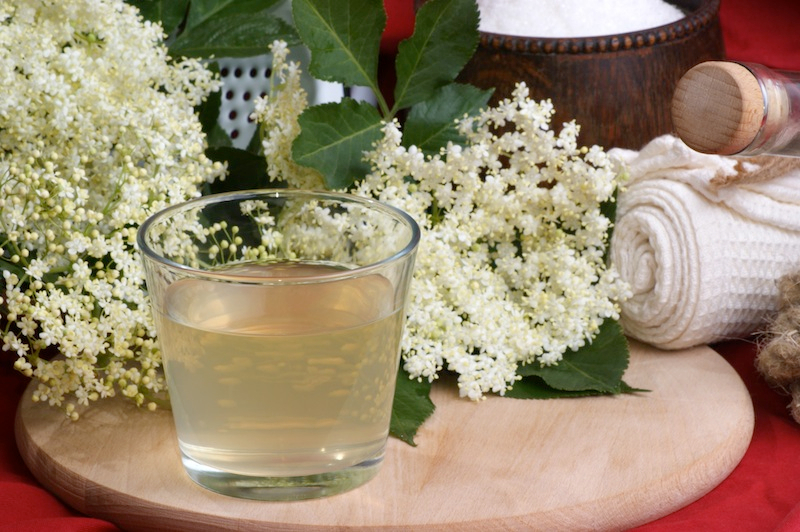
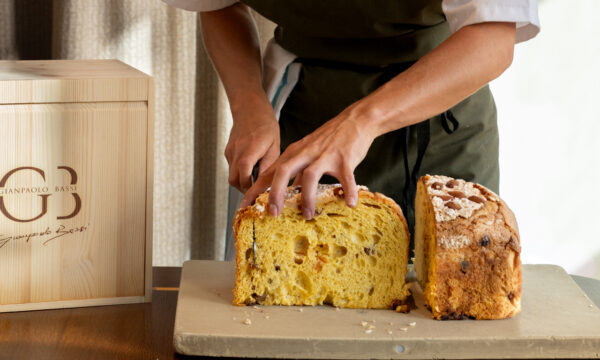
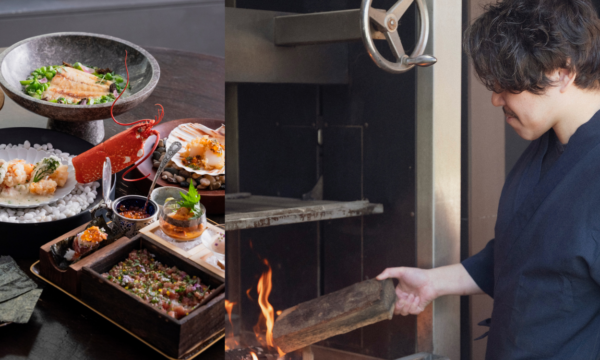
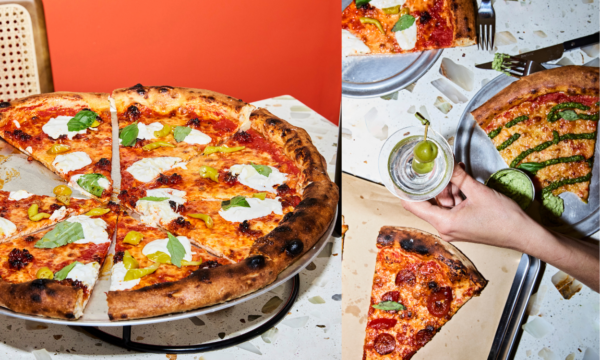

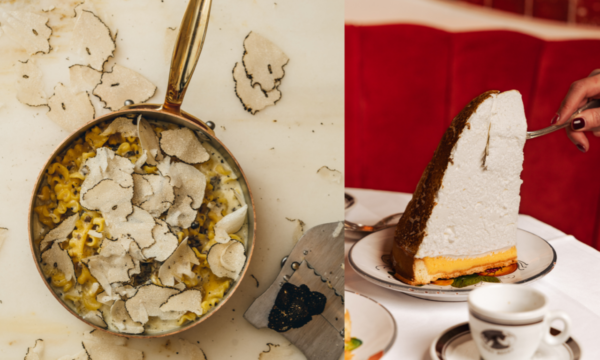
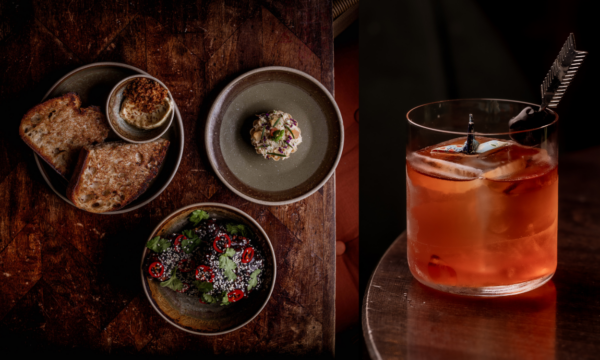


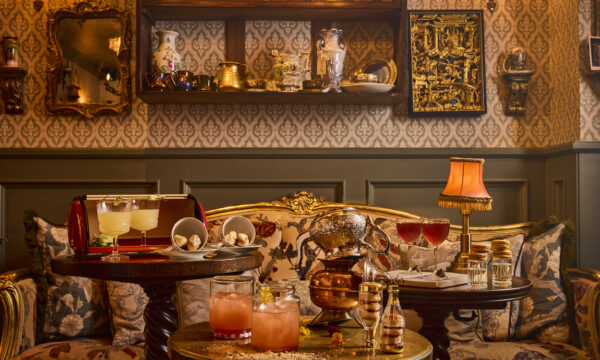













Facebook
Twitter
Instagram
YouTube
RSS